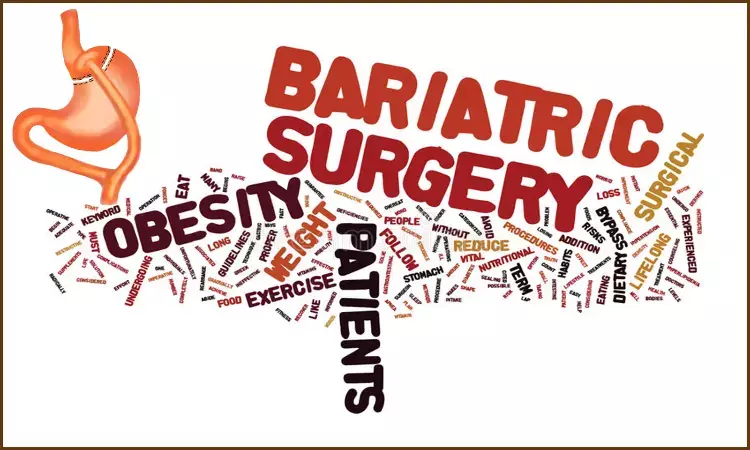- Home
- Medical news & Guidelines
- Anesthesiology
- Cardiology and CTVS
- Critical Care
- Dentistry
- Dermatology
- Diabetes and Endocrinology
- ENT
- Gastroenterology
- Medicine
- Nephrology
- Neurology
- Obstretics-Gynaecology
- Oncology
- Ophthalmology
- Orthopaedics
- Pediatrics-Neonatology
- Psychiatry
- Pulmonology
- Radiology
- Surgery
- Urology
- Laboratory Medicine
- Diet
- Nursing
- Paramedical
- Physiotherapy
- Health news
- Fact Check
- Bone Health Fact Check
- Brain Health Fact Check
- Cancer Related Fact Check
- Child Care Fact Check
- Dental and oral health fact check
- Diabetes and metabolic health fact check
- Diet and Nutrition Fact Check
- Eye and ENT Care Fact Check
- Fitness fact check
- Gut health fact check
- Heart health fact check
- Kidney health fact check
- Medical education fact check
- Men's health fact check
- Respiratory fact check
- Skin and hair care fact check
- Vaccine and Immunization fact check
- Women's health fact check
- AYUSH
- State News
- Andaman and Nicobar Islands
- Andhra Pradesh
- Arunachal Pradesh
- Assam
- Bihar
- Chandigarh
- Chattisgarh
- Dadra and Nagar Haveli
- Daman and Diu
- Delhi
- Goa
- Gujarat
- Haryana
- Himachal Pradesh
- Jammu & Kashmir
- Jharkhand
- Karnataka
- Kerala
- Ladakh
- Lakshadweep
- Madhya Pradesh
- Maharashtra
- Manipur
- Meghalaya
- Mizoram
- Nagaland
- Odisha
- Puducherry
- Punjab
- Rajasthan
- Sikkim
- Tamil Nadu
- Telangana
- Tripura
- Uttar Pradesh
- Uttrakhand
- West Bengal
- Medical Education
- Industry
Bariatric surgery tied to weight loss and metabolic benefits in teenagers as well

Obesity and its duration are significant risk factors for type 2 diabetes, cardiovascular events, multiple cancers and decreased quality of life. According to the Centers for Disease Control and Prevention, obesity affects 20.6% of adolescents ages 12-19 in the United States, meaning a potential lifetime of dealing with this condition. Complications from obesity can also result in a potentially decreased life expectancy of five to 20 years for these youth. In a new study published in Pediatrics, researchers at Children's Hospital Colorado (Children's Colorado) have found that both younger and older adolescents have similar weight loss, resolution of high blood pressure and high cholesterol, nutritional impacts and improvement in quality of life after bariatric surgery. These results strongly indicate that, when working with adolescents with severe obesity, age alone should not dissuade providers and patients from pursuing surgery when medically indicated.
"Bariatric surgery has become recognized as the safest and most effective treatment for severe obesity in adults; however, little was known about the relative merits and risks of these procedures in the youngest of teens compared to older adolescents," said Sarah B. Ogle, DO, a surgery fellow at Children's Colorado. "Thus, discussing the option of surgery in young adolescents with intractable severe obesity makes more sense than continuing ineffective treatments, given the proven benefits of surgery. This study is an exciting step toward demonstrating the safety and efficacy of bariatric surgery in the youngest adolescents."
Specifically, the study compared outcomes data of 228 adolescents enrolled in the Teen-Longitudinal Assessment of Bariatric Surgery (Teen-LABS). Each of these patients underwent bariatric surgery. Sixty-six of them were between the ages of 13 and 15 at the time of surgery while 162 of them were between the ages of 16 and 19.
Baseline data were collected within 30 days of surgery. Participants were then evaluated at six months, 12 months, and then annually, for five years after surgery. Researchers compared weight loss, comorbidity resolution, nutritional abnormalities and quality of life between the younger and older adolescents participating in the study.
No significant differences in the remission of high blood pressure or high cholesterol were observed between the age groups. Weight loss and quality of life were similar in the two groups. Further, younger adolescents were less likely to develop elevated transferrin, which plays a central role in iron metabolism, and low vitamin D.
"Younger teens have less commonly been considered eligible for surgery due to their age, but the findings in this analysis should shift the focus from a concern about age to more important factors that should drive decision-making. These include providing the patient with the best opportunity to reach a normal BMI after surgery, reversal of serious complications of obesity, and treatment that will most likely increase the lifespan," said Thomas H. Inge, MD, PhD, Teen-LABS principal investigator, and director of pediatric surgery and the bariatric center at Children's Colorado. "While these results are promising, longer term study of this early intervention is needed to fully evaluate the impact of surgery to reverse late effects of childhood severe obesity that develop over the decades.
https://pediatrics.aappublications.org/content/early/2021/01/28/peds.2020-024182
Hina Zahid Joined Medical Dialogue in 2017 with a passion to work as a Reporter. She coordinates with various national and international journals and association and covers all the stories related to Medical guidelines, Medical Journals, rare medical surgeries as well as all the updates in the medical field. Email: editorial@medicaldialogues.in. Contact no. 011-43720751
Dr Kamal Kant Kohli-MBBS, DTCD- a chest specialist with more than 30 years of practice and a flair for writing clinical articles, Dr Kamal Kant Kohli joined Medical Dialogues as a Chief Editor of Medical News. Besides writing articles, as an editor, he proofreads and verifies all the medical content published on Medical Dialogues including those coming from journals, studies,medical conferences,guidelines etc. Email: drkohli@medicaldialogues.in. Contact no. 011-43720751


